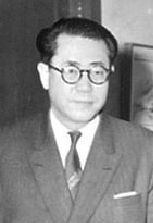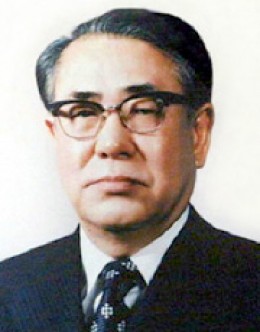<Back to Index>
- Neuropsychologist Alexander Romanovich Luria, 1902
- Composer Luigi Arditi, 1822
- President of South Korea Choi Kyu-hah, 1919
PAGE SPONSOR


Choi Kyu-hah (July 16, 1919 – October 22, 2006) (also spelled Choi Kyu-ha) was the President of South Korea between 1979 and 1980. He was born in Wonju, Gangwon Province. He served as foreign minister from 1967 to 1971 and as prime minister from 1975 to 1979.
After the assassination of Park Chung-hee in 1979, then Prime Minister Choi assumed power. Because of the unrest resulting from Park's authoritarian rule, Choi promised democratic elections (the elections under Park were widely seen as rigged), as well as a new constitution to replace the highly authoritarian Yusin Constitution. Choi won an election in December that year to become the country's fourth president.
In December 1979, Major General Chun Doo-hwan and close allies within the military staged a coup d'état against Choi's government. They quickly removed the army chief of staff and virtually controlled the government by early 1980.
In April 1980, due to increasing pressure from Chun and other politicians, Choi appointed Chun as head of the Korean Central Intelligence Agency. In May, Chun declared martial law and did away with all trappings of civilian government, becoming the de facto ruler of the country. By then, student protests were escalating in Seoul and Gwangju. The protests in Gwangju continued, resulting in the Gwangju Massacre, where around 987 civilians were killed within five days by Chun's military.
Choi resigned soon afterward. Chun became president on September 1, 1980. After his resignation, Choi lived quietly out of the public eye and died on October 22, 2006.